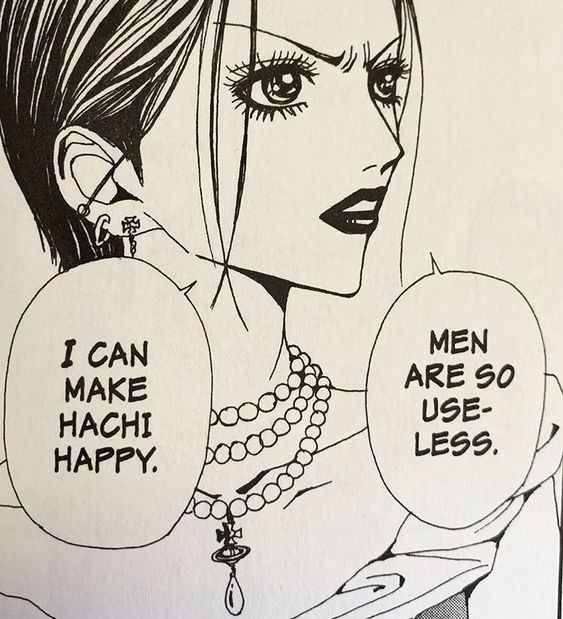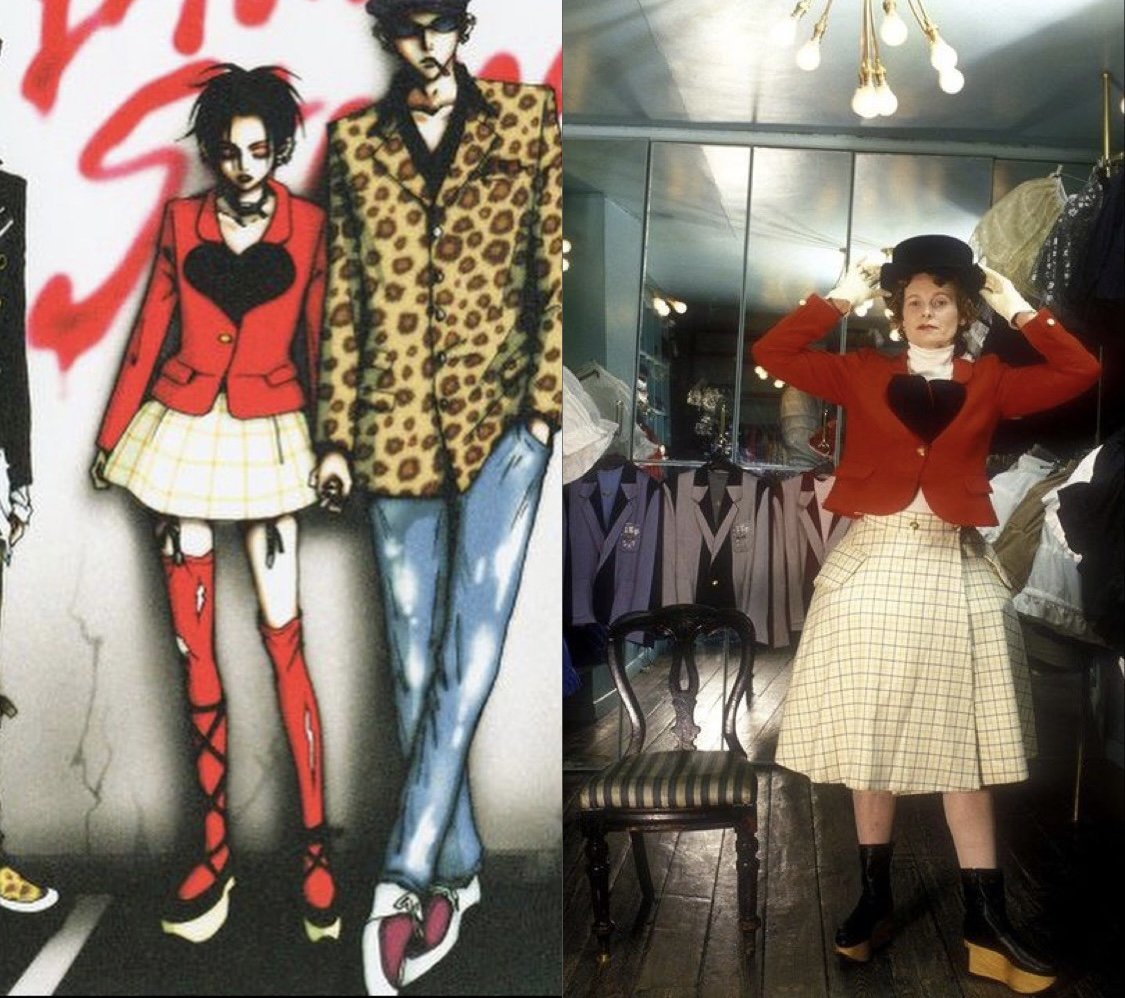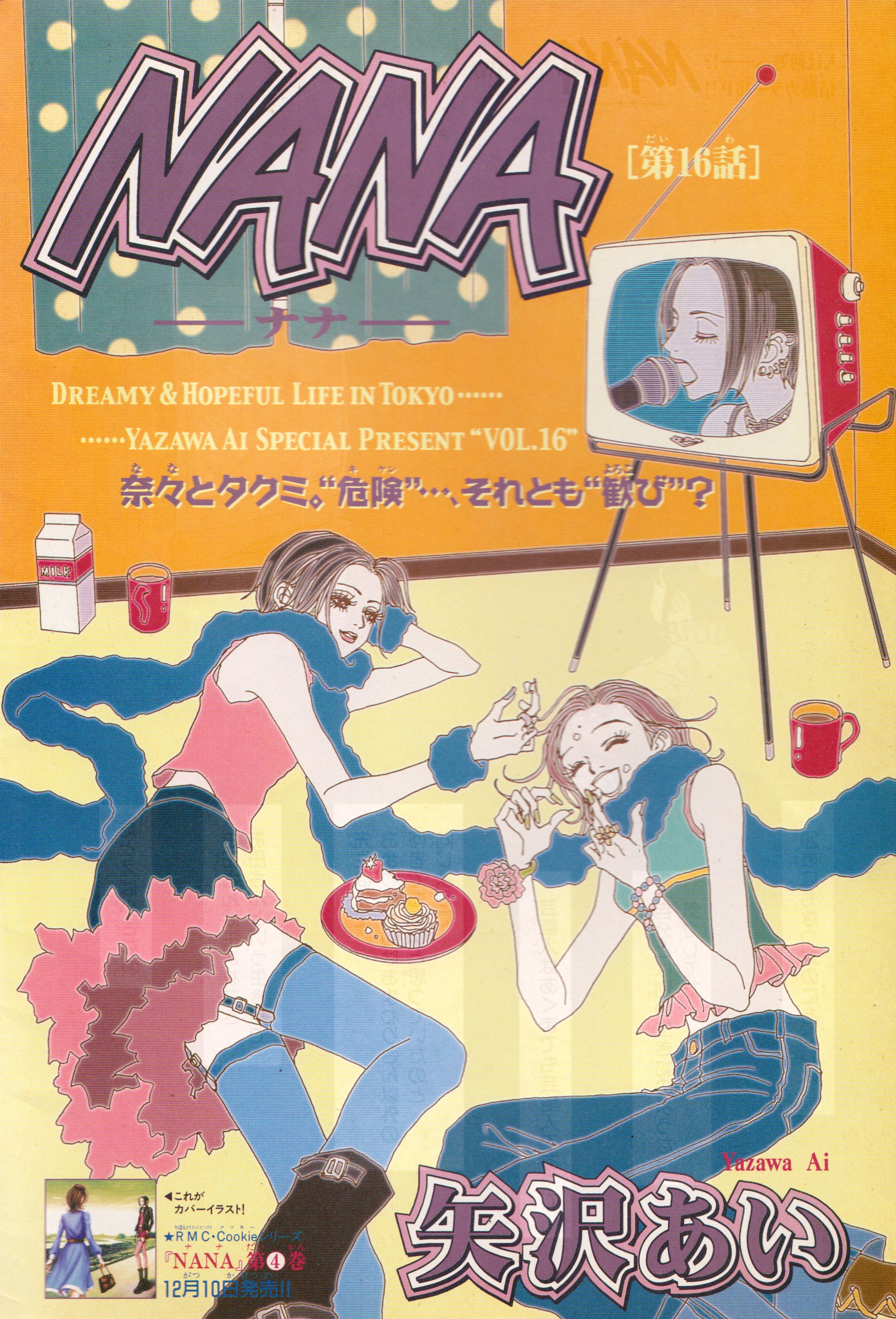NANA & Ai Yazawa: A Cultural Phenomenon
Cover photo ( Nana 2000)
NANA: Sex Pistols, Sisterhood and Killer Style. A cultural phenomenon you didn’t know you needed.
NANA is a manga and anime series and movie originally created by Ai Yazawa.
Having sold millions of copies worldwide, its influence has taken not only Japan but the world by storm.
Nana tells the story of two young women who share the same name, as they embark on a new life in Tokyo, coincidentally, on the same evening; and that's about all that they have in common. This manga is one of the firsts of its kind to illustrate a deep female friendship paired with the conflicts of coming of age.
Usually, popular shōjo manga follow the stories of high school life told through a rose-tinted lens, an adolescent plagued with new superpowers, or a person transported to another world. It's unusual for a slice of life series to follow the daily happenings of people navigating their adult life, let alone discuss mature topics such as sex and love. Nana does just this, as it tackles themes oriented in realism such as drug and alcohol abuse, heartbreak, crushed dreams, pride and ambition.
Nana inspired a generation, to feel confident in a rebellion against conformity through its display, of two women from the countryside moving to the big city, in pursuit of their respective dreams, as they try to empower themselves and fight their fears of being alone.
While one pursues fame as a rockstar, and the other is just trying to navigate life independently, the Nana series ignited a movement appealing to all types of women, from the alternative to the normies. This is evident not only in the way the series was percepted in fashion but also in music. The author Ai Yazawa, having studied fashion herself, was a big fan of Vivienne Westwood and this can be noted repeatedly through the series, as she pays tribute by adorning the characters in ACTUAL pieces from Vivenne’s collections. At its time, the dark, smoky style of Nana Osaki became iconic, as punk fashion was considered to be a staple in Tokyo street style and has continued to inspire stylistic choices that are still prevalent today. As such, today, the names Nana and Vivienne Westwood are often synonymous.
“NANA is the work of my life. There, I put into play all the cards in my hand. I’m sorry because they have waited so long, I’m going to eventually do my best.”
Right: Westwood in her own design.
Left: Nana Osaki illustrated in the same garments.
Teen magazines in the 2000s: how to dress like Nana.
Naomi Campbell walking for Vivienne Westwood; Same shoes pictured on right.
The Nana series takes a candid perspective on friendship, romance and accepting what you can and cannot do in life. At times, its content is very difficult to consume, because of how close to home it hits. The uncertainties, insecurities and ugly qualities we all have are realistically reflected through Nana’s central characters and that's what makes it so compelling.
Despite its record success, Nana is incomplete and its serialization has been put on hold for the last 12 years due to author Yazawa falling ill. It's without a doubt that despite the future of the series, Nana has become both a pop and sub culture phenomena and will continue to be a timeless, motivating series for years to come.
Nana, TV Series (2006–2007)




